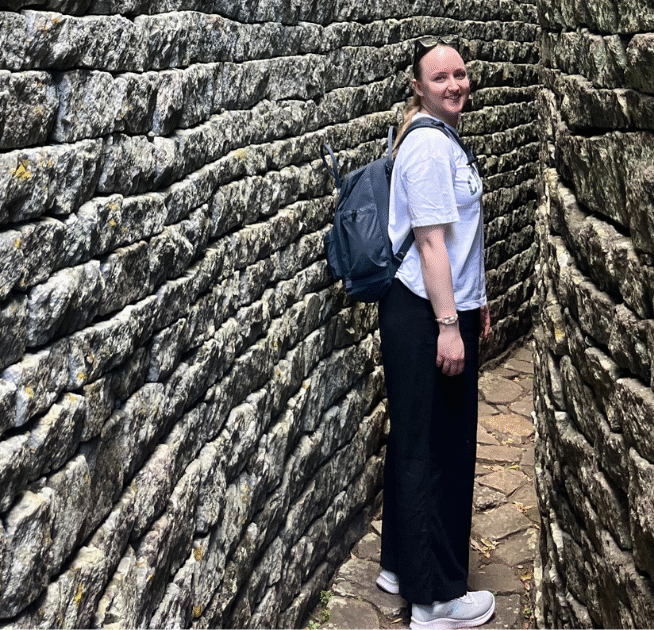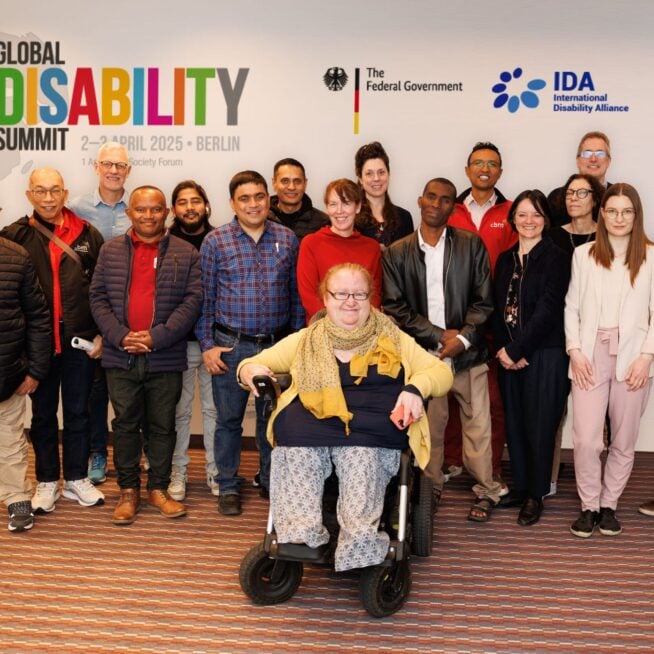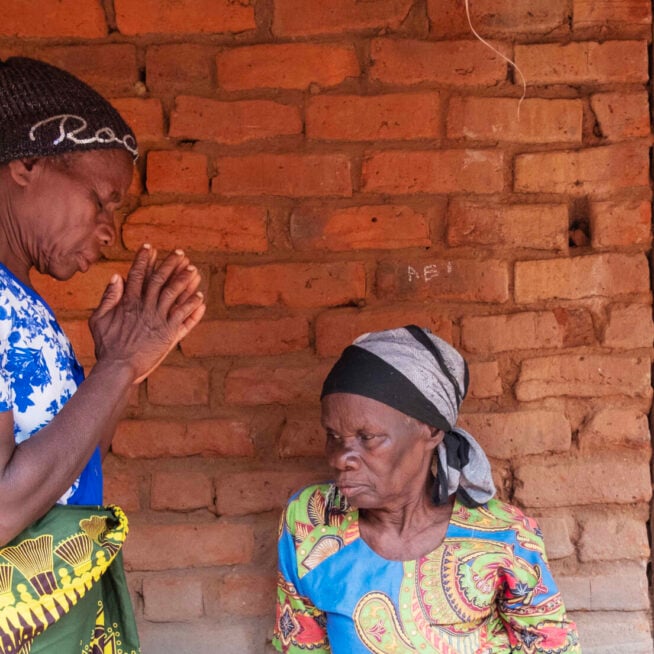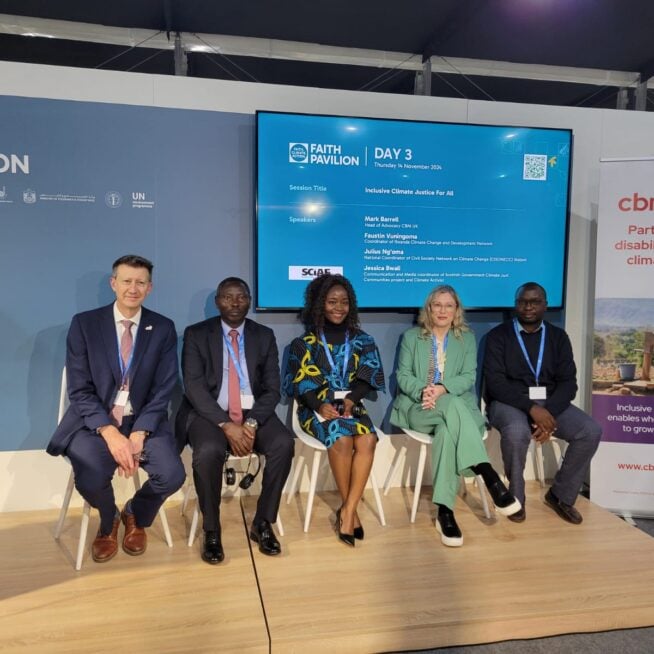Want to transform lives with us? Stay in touch and hear about our news, activities and appeals by email!
Project highlights: Supporting young people with albinism to access eye health and employment in Zimbabwe
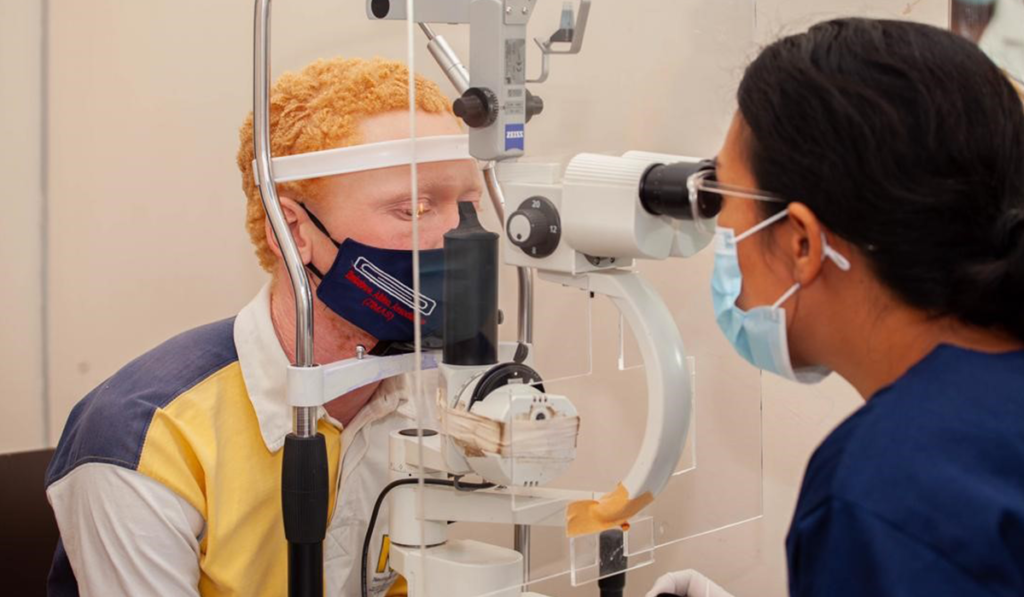
In the past year, 52 young people with albinism (aged 18-35) have been supported to access eye health services and employment thanks to a project in partnership with the Zimbabwe Albino Association (ZIMAS).
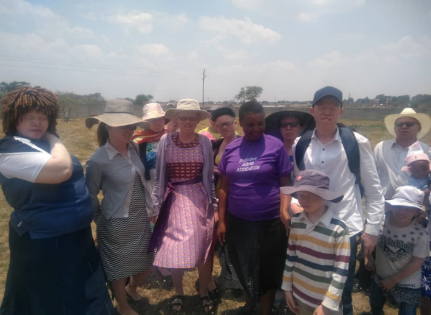
In Zimbabwe, people with albinism routinely face stigma and discrimination, as well as exclusion from health services, employment, education and social opportunities. A very high proportion of people with albinism also have a visual impairment, but specialised eye health services, including low vision devices, are often difficult to access or too expensive. These factors all contribute to high school drop-out rates among children with the condition, leading to poor employment prospects. This often also leads to low self-esteem, which means youth with albinism lack the confidence to approach employers.
We’ve been working alongside ZIMAS and young people with albinism to change this! Here are some of our highlights from the project:
Low vision assessments
Without access to appropriate low vision services, persons with albinism will continue to be labelled as ‘blind’. The 52 selected participants with albinism were therefore assessed for low vision and provided with relevant devices, such as glasses and magnifiers to improve their sight.
The majority of the participants reported improved vision after using the assistive devices in their day-to-day activities, including improved clarity. The youth also attended an eye health workshop which was facilitated by the chief government ophthalmologist, who provided information about the connection between low vision and albinism, challenged the myths surrounding these conditions and advised participants on how to look after their eyes and improve their sight through low vision devices.
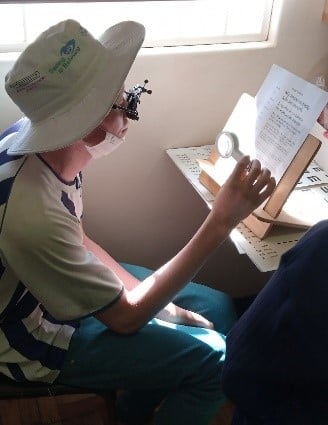
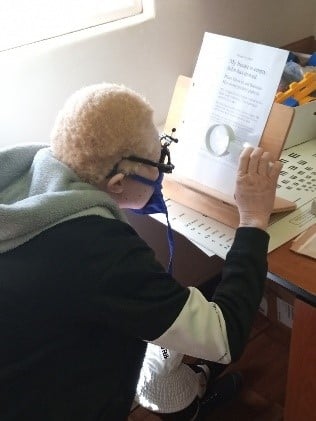
Vocational training to enhance employment opportunities
Formal unemployment is at 96% in Zimbabwe with the majority of citizens working in the informal sector. Even with skills and vocational training it may be impossible for beneficiaries to be employed in the formal sector. As a result the project has worked on improving livelihood opportunities through self-started microenterprises. 12 young people with albinism were selected for a 1-year vocational training course, covering various jobs including carpentry, electrical engineering, horticulture and motor mechanics. The young people were provided with the learning resources they needed, including laptops, backpacks, tool boxes, textbooks, exercise books, calculators, USB memory sticks and safety shoes and clothing (where relevant).
After completing the training, they were awarded with either a National Certificate or a National Foundation Certificate in their respective field of choice.
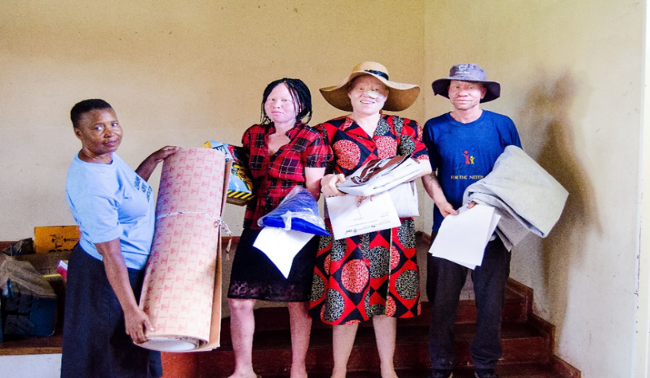
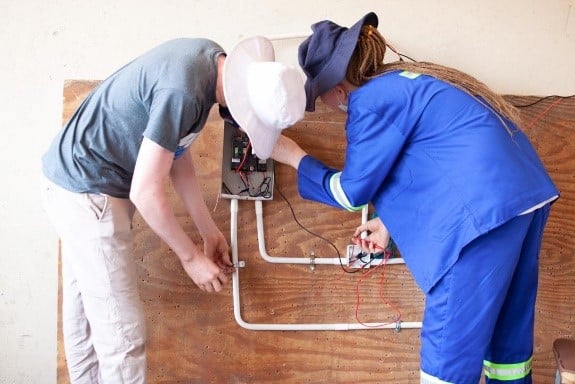
Improving employability
Business management training and career guidance was held for the participants, where they learnt about business planning, business finance and the principles of running a business.
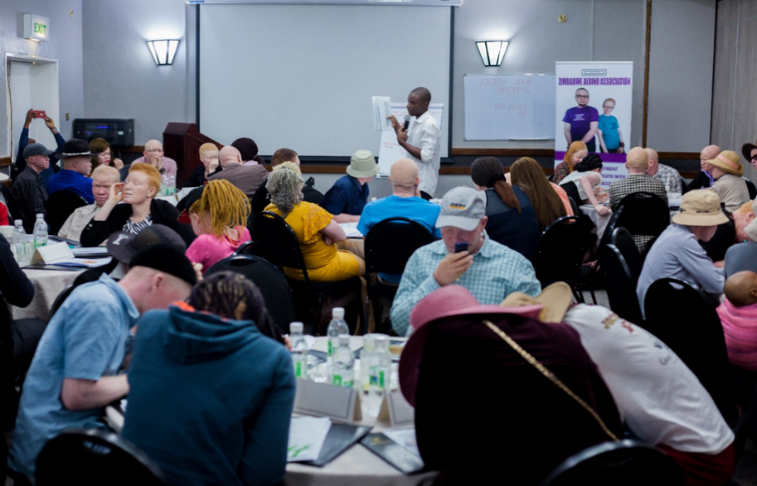
The 52 young people with albinism were also invited to a career guidance seminar, where 5 people with albinism spoke about their personal experiences and successes in different professional fields – being great role models for the youths – including a doctor, teacher, farmer, painter and monitoring and evaluation officer. Participants had the chance to ask the panellists questions and received low vision devices and sunhats during the training.
After undergoing the vocational training programmes, the youth were also given career management training, including personal attitudes, understanding your career path and staying on top of the latest trends and the effectiveness of positive interactions with stakeholders in their respective careers.
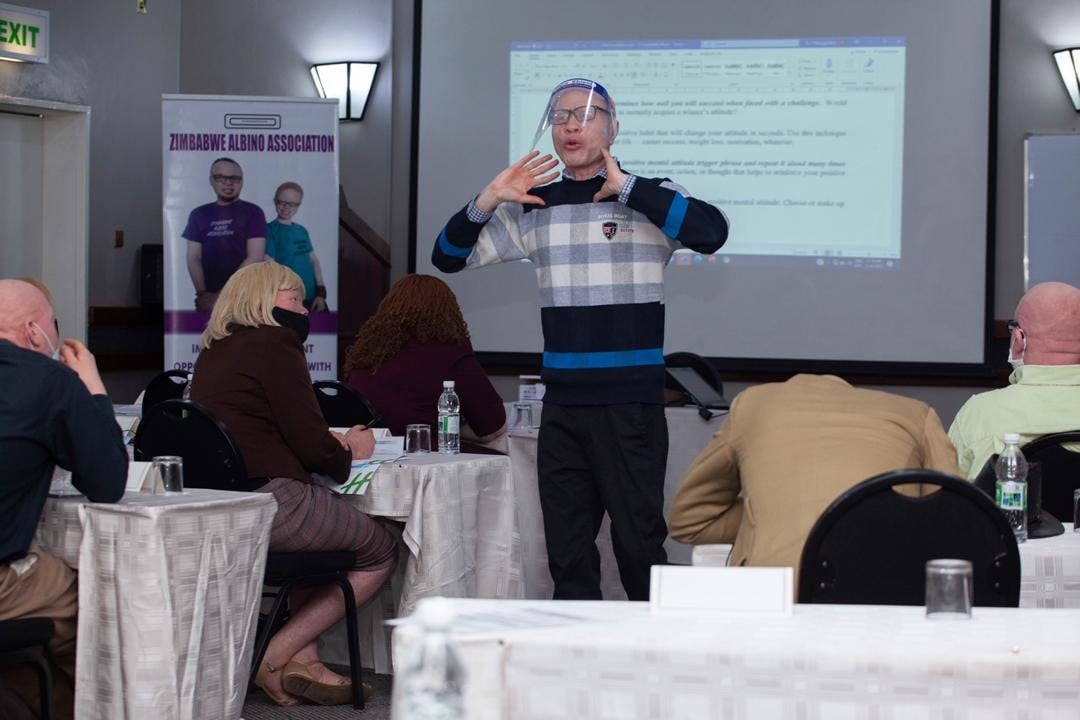
Self-esteem seminars
The majority of persons with albinism are profoundly stigmatised within society, which often poses an impediment to their meaningful and effective participation in the economic sector. A series of interactive seminars were carried out for young people with albinism and ZIMAS staff, to give participants the chance to discuss their personal experiences of stigma and discrimination and build their self-esteem and confidence which are vital for employability.
Mercy Maunganidze from ZIMAS gave a very powerful presentation emphasising the need to accept yourself and never to look down upon yourself. Memory Munyoro from ZIMAS emphasised the need for the young people to stand up for their rights as people with albinism, to participate in social activities and to make use of any opportunity that comes their way. Kudakwashe Machiha from ZIMAS spoke about self-love and how being presentable can give you the confidence to participate in society. The participants also had the chance to hear from disability rights advocates.
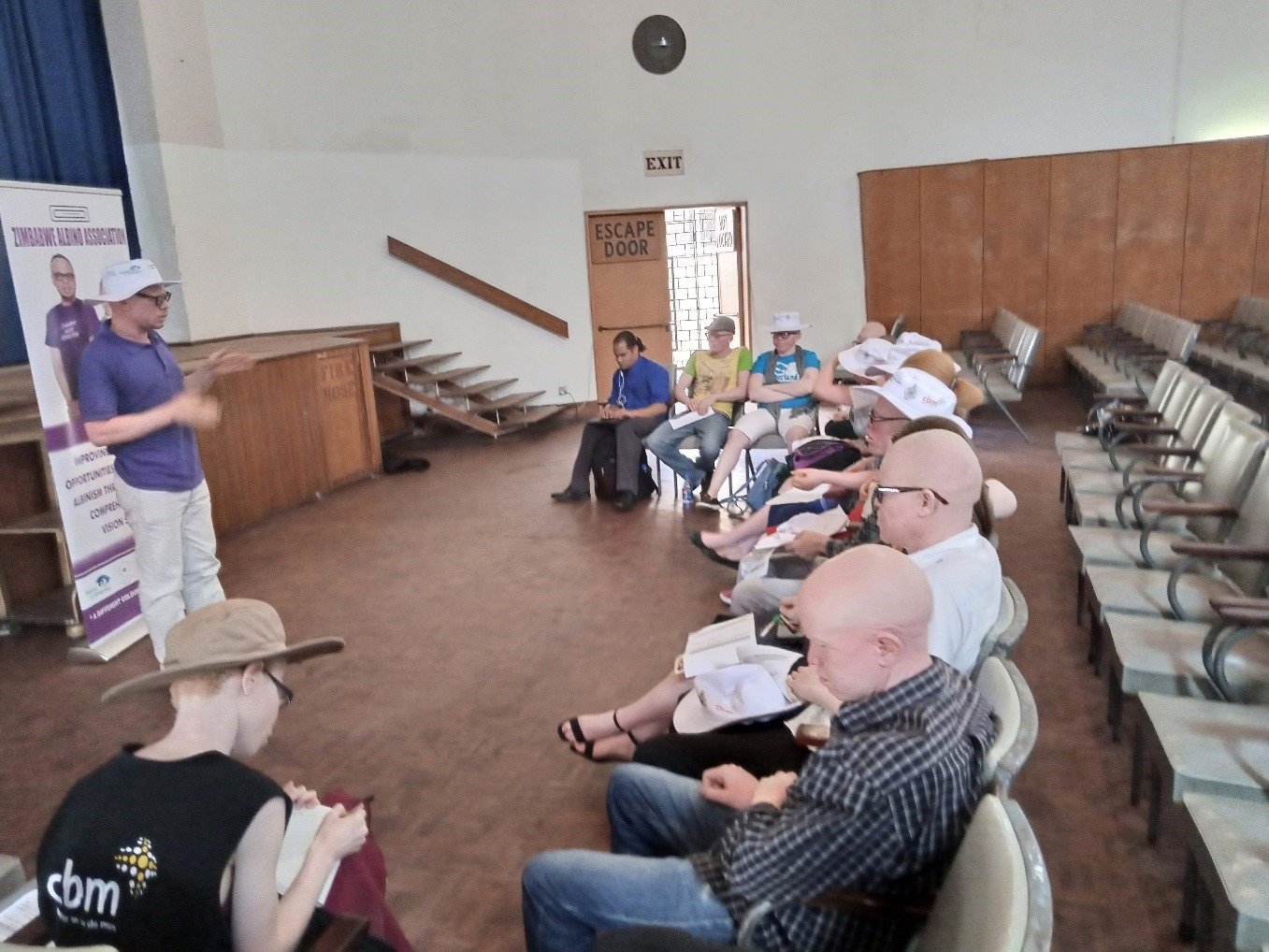
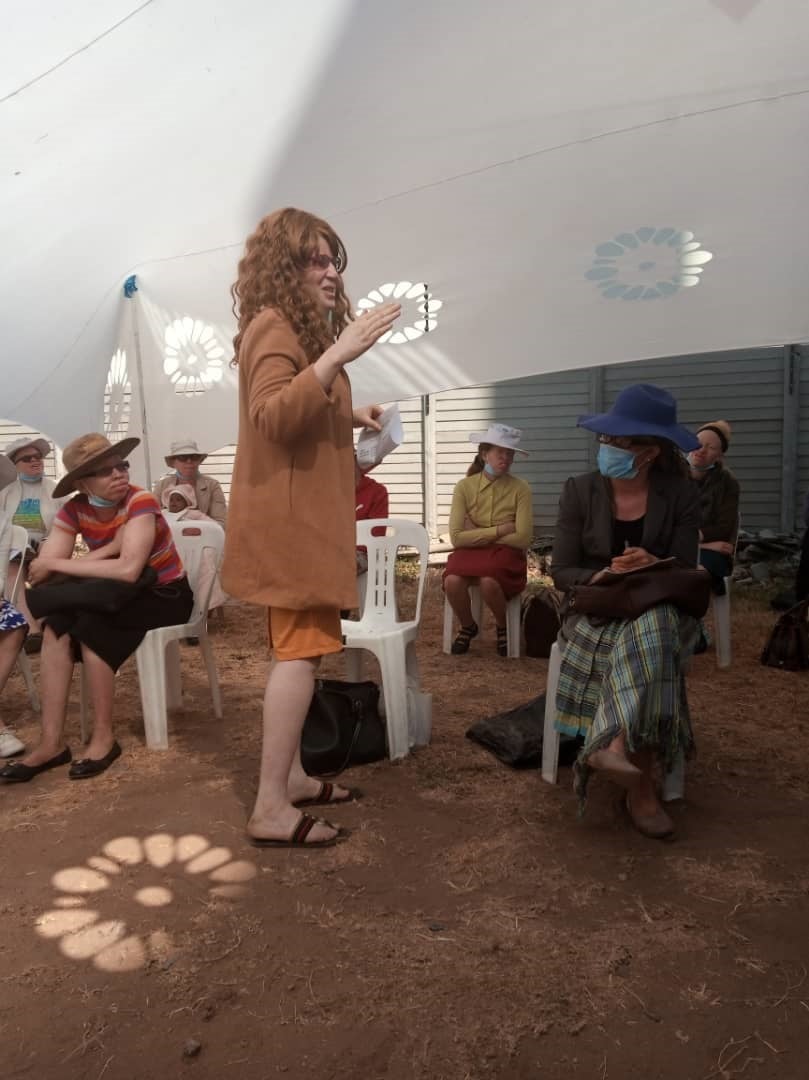
In total, young people with albinism attended 8 self-esteem and confidence building seminars throughout the year and, at the end, they took part in a graduation ceremony where they were presented with certificates of completion in self-esteem and confidence building.
The participants reported a significant improvement in their self-esteem by the end of the project, going from 60% of participants reporting low self-esteem at the start of the project to 54% reporting excellent self-esteem and 22% good self-esteem. The progressive self-esteem and confidence building seminars left them in a better position to deal with routine stigma and discrimination in Zimbabwe and improve their employability chances.
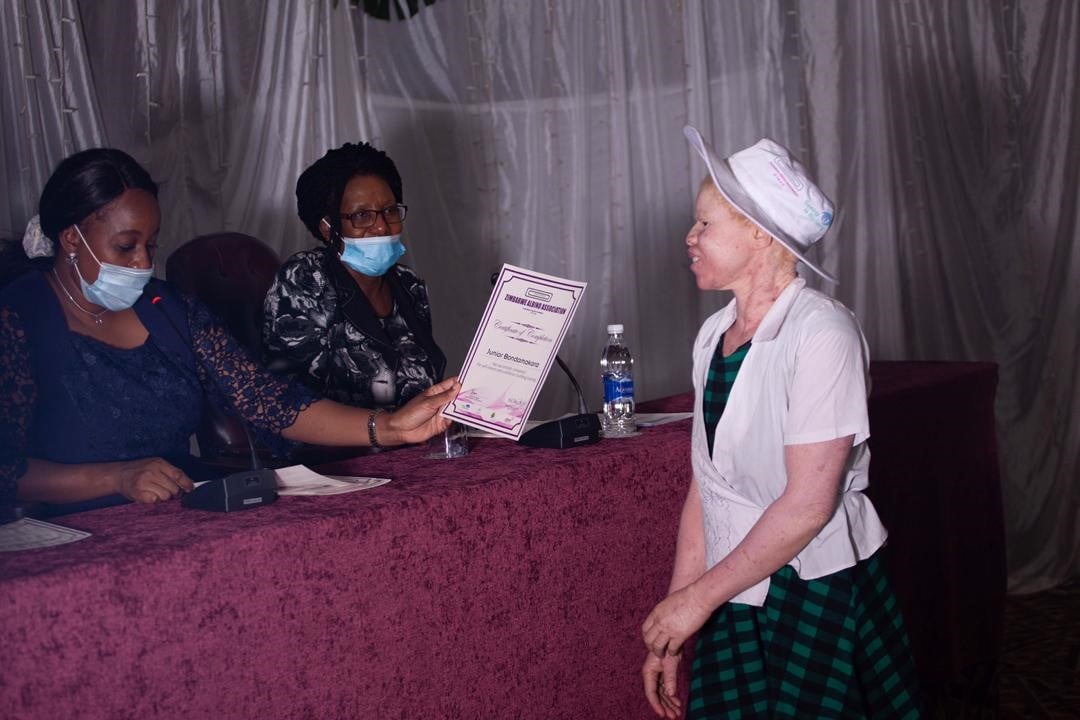
Small livestock production and management
In March 2020, 41 of the participants and ZIMAS staff took part in a 2-day training course on small livestock production and management, covering poultry, piggery, fish farming, rabbit production, goat production and Apiary. Feedback from the training was very positive as the students felt these skills could really transform their lives – especially due to Zimbabwe having an agro-based economy, with more opportunities for farm work than other careers.
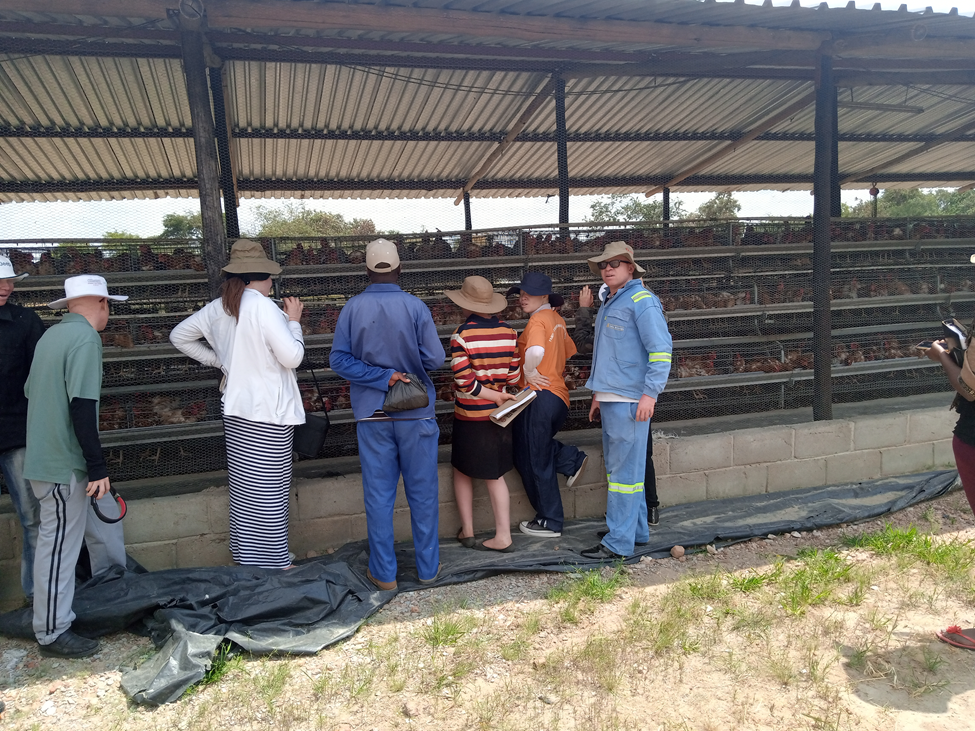
Providing loans for business start-ups
28 of the participants were also supported with revolving loans to help them set up their own businesses – including poultry production, grocery shops, furniture manufacturing, hardware shops and potato farming. This support was very welcome, especially due to the economic crisis in Zimbabwe currently – particularly financial support given to participants family members too.
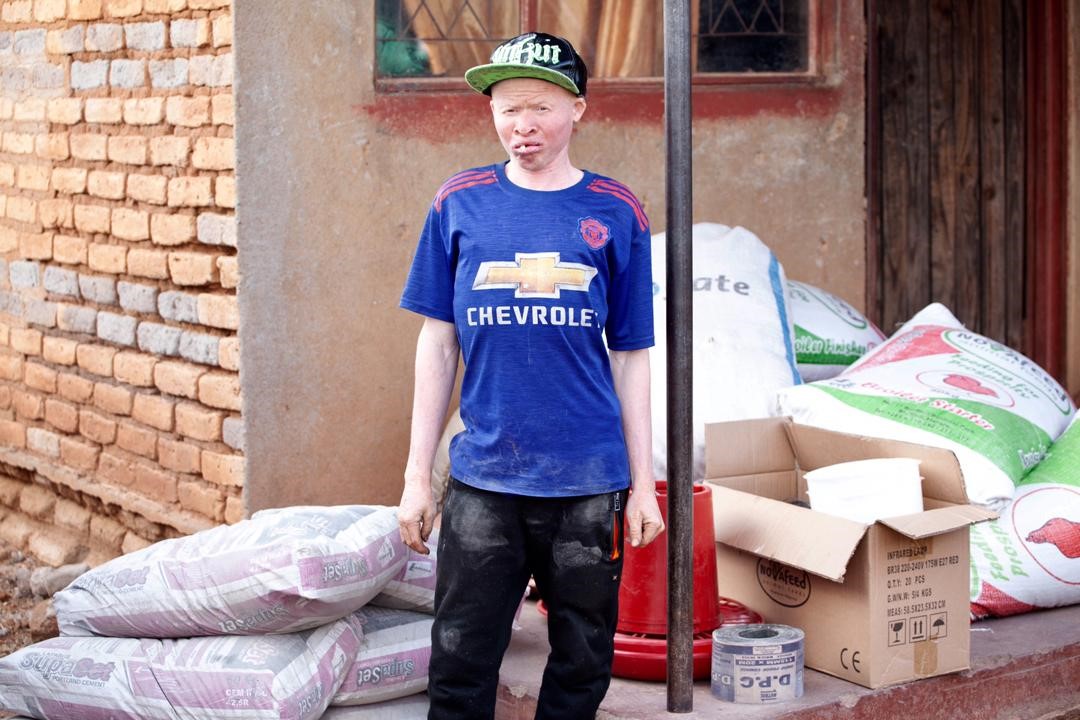
Building Capacity of ZIMAS
Finally, the project has also helped build the capacity of ZIMAS to ensure a stronger voice and representation for people with albinism in Zimbabwe. ZIMAS staff have received training in disability-inclusive development, inclusive eye health, safeguarding and business management.
Overall, 87% of participants reported satisfactory support and 97.1% indicated that they were consulted on issues that concerned them and their opinions were valued. By the end of the project, the majority of particpants reported that their knowledge of business skills had gone from poor to good (25) or excellent (8).
This project has been a great success and sets the tone for future interventions to improve the situation of persons with albinism through increased access to low vision services, and education and employment opportunities.
This project was funded by Standard Chartered through their Seeing is Believing programme to tackle avoidable blindness.
Images: 1st – Youth with albinism going through low vision assessment. 2nd – Outreach programme by ZIMAS to identify youth with albinism in Chitungwiza, Zimbabwe. 3rd & 4th – Youths with albinism at Sekuru Kaguvi Hospital, undergoing low vision assessments. 5th – ZIMAS staff handing over learning materials to some of the youths at Ruwa Rehabilitation Centre. 6th – Youths doing electrical engineering showing off a circuit they made. 7th – Youth with albinism during the business management training. 8th – One of the facilitators, Dr Farai, presenting during the career management training. 9th – Youths with albinism at one of the self-esteem seminars. 10th – Girl with albinism sharing her experience and giving advice to younger girls, at one of the self-esteem seminars. 11th – Girl with albinism being presented with certificates of completion in self-esteem and confidence building. 12th – Youths with albinism at the poultry production unit at Zviko farm, Zimbabwe. 13th – Youth with albinism with some of the materials to start up his business.

